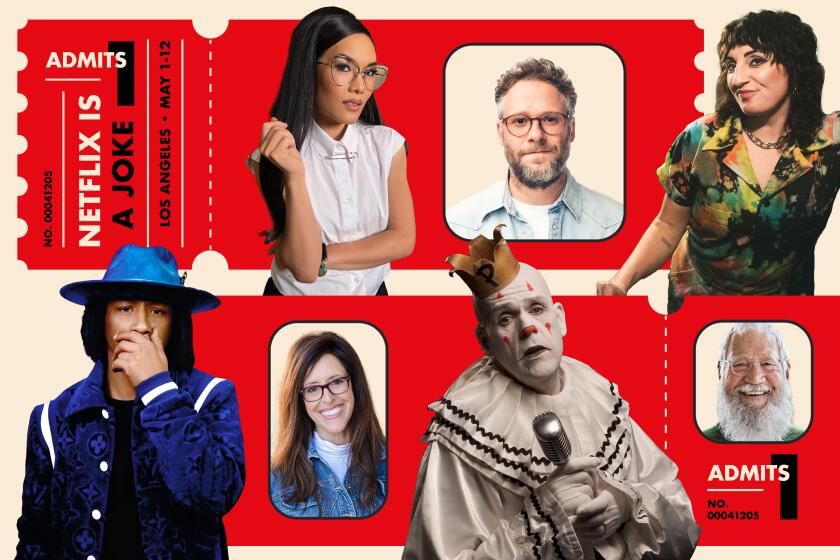Congressional copycats
HOLLYWOOD ALREADY CONTROLS most of what Americans see on TV. Now a pair of representatives in Washington want to help Hollywood control how Americans see it -- whether on their TV or some other new device. As a matter of both law and marketing, it’s a bad idea.
In the waning days of the 2005 session, Reps. F. James Sensenbrenner Jr. (R-Wis.) and John Conyers Jr. (D-Mich.) quietly introduced, on Hollywood’s command, legislation that would require new computers, TV sets and video recorders to limit copying. The bill targets the so-called analog hole, a security vulnerability present when there are conventional analog connections between devices -- a TV, say, and a VCR. Newer devices have digital connectors that allow entertainment companies to scramble audio and video signals and thus protect themselves against illicit copying.
The bill aims to prevent pirates from slipping through the analog hole to copy movies or television programs, then converting them into digital files that could be swapped on the Internet or burned onto DVDs. It would require any new device that receives an analog video signal -- including TV tuners, computers and TiVos -- to be equipped with technology to limit copying and redistribution online.
The measure, which is expected to draw fire from some computer and consumer-electronics companies, would give Hollywood unprecedented control over what people do with the programs that come into their homes. Studios could force TiVos and other digital recorders to erase pay-per-view or on-demand movies stored for more than 90 minutes. New computers could be prevented from showing copyprotected programs, such as a movie downloaded from an online store, in high definition.
The studios have an understandable interest in combating piracy. But Congress should not be mandating the technologies used to fight it, particularly when they aren’t proven. As Sony BMG learned when it used a new technology to prevent CDs from being copied, unanticipated glitches can inflict more than enough pain to offset any reduction in illegal copying.
At any rate, this legislation won’t stop determined video pirates, who will find other ways to make bootlegs. Its effect would be mainly on typical TV viewers, who would be prevented from doing a number of things they expect to be able to do with video. Maybe you’re an HBO subscriber who recorded an episode of “Curb Your Enthusiasm” to watch on the bus the next morning on your way to work. Today, you can use analog connectors to convert that recording into a digital file suitable for your iPod or Sony PSP. If the bill became law, the tools needed for the conversion would be illegal.
Supporters of the legislation acknowledge that Hollywood needs to give people more ways to watch shows at the time and place of their choosing. And there are signs that Hollywood is getting the message, given the recent flurry of deals between the networks and the companies that deliver their programming. Yet today the only legal way to put the contents of a DVD you own onto the hard drive of your PC, DVR or iPod is through analog connectors.
Such connectors are gradually disappearing from TVs and video recorders anyway, so this “hole” will eventually close on its own. In the meantime, if the goal is to deter illegal copying, Hollywood should work harder to help viewers watch what they want when they want to. And Congress should understand that piracy cannot be curbed simply by giving Hollywood more control.
More to Read
The biggest entertainment stories
Get our big stories about Hollywood, film, television, music, arts, culture and more right in your inbox as soon as they publish.
You may occasionally receive promotional content from the Los Angeles Times.






